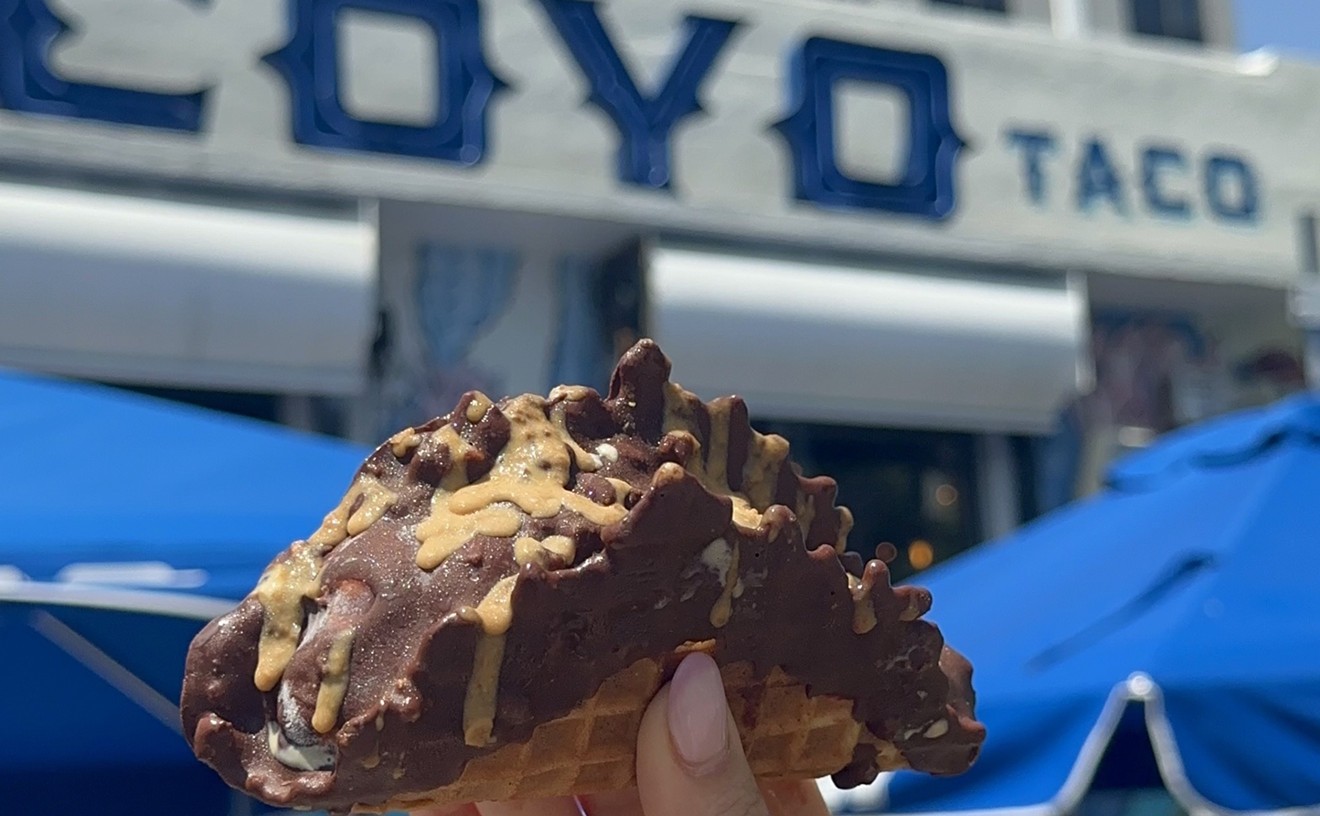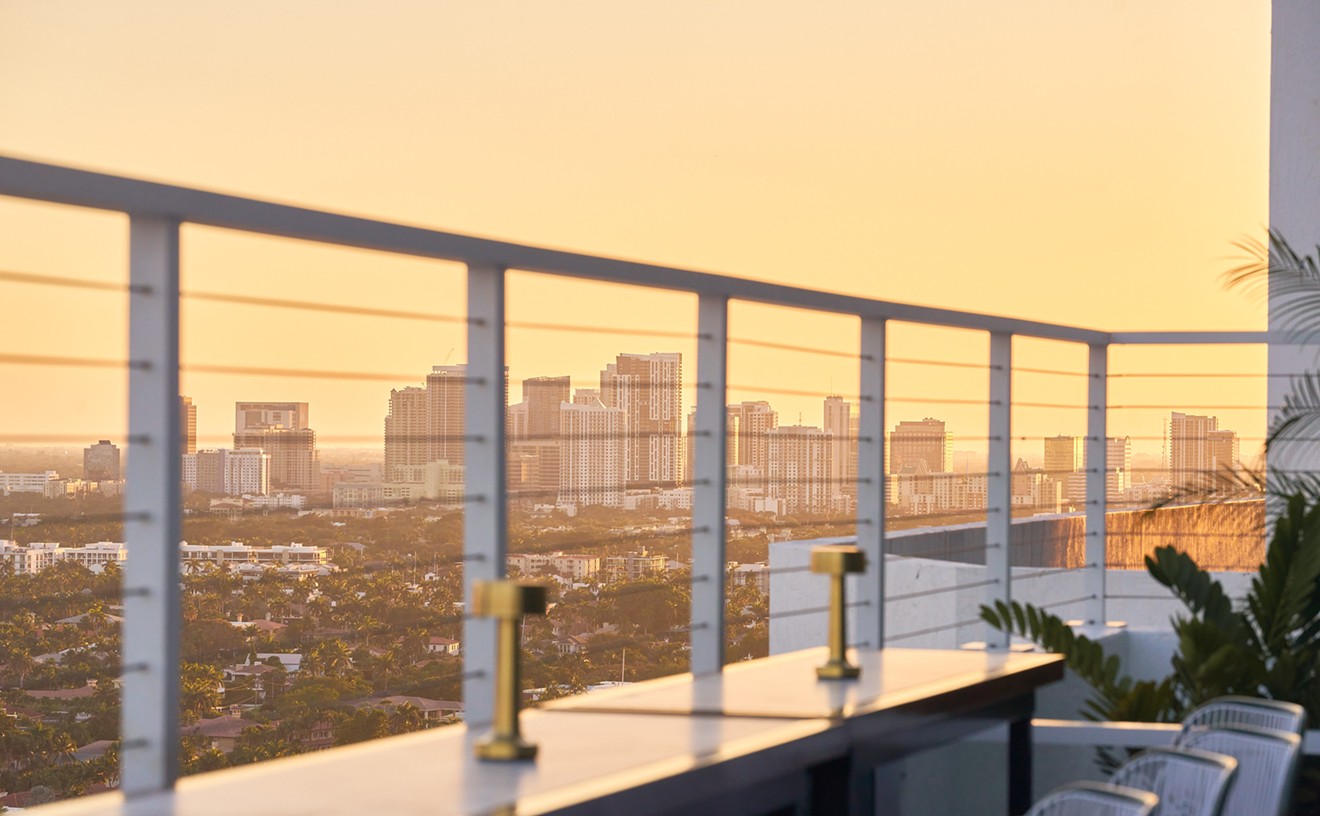For director Patricia Perez, the Miami International Film Festival will mark the end of an epic year. Her first feature-length documentary, Finding Gastón (Buscando a Gastón), which centers around the life and work of acclaimed Peruvian chef Gastón Acurio, has already traveled around the world a couple of times. It premiered last March in Lima, Peru, and has since traveled to and won awards in San Sebastián, Spain, New York City, Washington D.C., and Berlin.
Her work has been a chance to enlighten the world not simply about the incredible cuisine that Peru continues to export, but the individuals that make each and every dish possible-the farmers, the chefs, the culinary students hungry to give back to their homeland. For Perez, the last year has been the realization of a dream that was nearly 20 years in the making.
Ahead of Finding Gastón's Miami premiere, we had a chance to catch up with Perez to find out a little more about the origins of the film, and just how much it means to her. Born almost entirely out of chance, Perez never intended to become a documentarian. However, the call of her native country and the chance to follow one of the world's greatest chefs on a mission to change lives eventually changed hers, too.
New Times: Tell us a little about how you got into film-making.
Patricia Perez: I originally studied communications. When I grew up in Peru, there wasn't a film career. The career was called communications and they taught you a little about film and television. I did that, but I wanted to study film, so I applied for a Fulbright grant, and that brought me to the U.S. to do my Master's in Fine Arts, which was at film school.
Afterwards, I was in Peru for three years, and then I came back to the States. I was in Washington, D.C., when I heard about a Directors Guild of America training program for directors in L.A. It's a very competitive program, but I decided to give it a shot because I wanted to start working in the industry. After a year of applying, I was lucky enough to be accepted, so I moved to L.A.
How did you end up using Peru as subject matter?
I went to visit Peru for two weeks in 2010. I was there when they did the press release for Mistura for that year. I was amazed. I remember Gastón was at the press release explaining what the fair was about and how they were going to bring thousands of farmers, hundreds of cooks. I thought it was an amazing event. I love food. I'm a food person. I thought, maybe it would be a good idea to make a documentary about this. I started looking for documentaries about the fair and I couldn't believe nobody had done one, being that it's such a huge event.
The Mistura documentary was so crazy because it was really born and pre-produced during one week in Peru. I was pre-producing while I was back in Los Angeles. I went back, we shot it, I edited it, and we did really well with that documentary. We took it to a lot of festivals. We sold it to National Geographic in the U.S. and DirectTV in Latin America.
Was this your first foray into documentary?
Yes. It was funny, until that point I didn't know I wanted to do documentaries, because I had been working in fiction my whole life. But the people I met doing the documentary about MIstura changed me. We went to a potato farmer's house. We flew to Cusco. We drove five hours into the mountains. We climbed a mountain, with high altitude sickness.
Once we got there and were with the farmer and his family, we were born again. It was such an amazing experience. I got to meet all these characters that made me realize I wanted to keep doing documentaries because, I love fiction, and I think it's an amazing thing. At some point I'll go back to it, or do it at the same time. But, the value that I found in meeting these people that are so real and their stories are so amazing, I thought, "I don't have to create anything." Everything in Peru, at least, there are so many stories that exist that need to be told, I just thought I'm going to continue doing documentaries. There's so much material in Peru.
So what was the spark for Finding Gastón?
I finished Mistura and then I thought I wanted to do another documentary, but not about food. But right when I finished Mistura, the G9 was going to happen in Peru, with all those big chefs heading there. When I started researching the G9 like Ferran Adria and Massimo Bottura, I realized they all had their own documentaries. Then I thought how crazy it was that Gastón didn't have anything about him, being so important in the history of Peru and its gastronomy. The story of what Peru has become. I thought there must be documentaries that I didn't know, but there wasn't anything.
Gastón is a very public figure in Peru, so I wanted the documentary to be based on real activities. I didn't want anything to be created by us or pre-produced. Then it would be like propaganda, which wasn't the idea. The idea was to talk about the real things he works on and the people around him.
We wanted to know what he did every day. Because we had seen him at Mistura, we knew that he worked with students at Pachacútec. That he worked with farmers. The idea was to, through his story, tell the story of all these other characters that are really relevant to the gastronomic chain, but that people might not be aware of.
The film was first released last year in Lima, correct?
Yes, in Lima. Our aim with this documentary was most focused abroad. Most everything I do is about expanding Peruvian culture in the world, so our focus audience was abroad. But, we wanted to release it in Peru because it was a Peruvian matter, and I think that the story of Gastón and what he does, a lot of people don't know.
Some people in Peru think that Gastón is a chef that has a restaurant, but filming over three years I saw such amazing things about the work he does, but also that his chefs and his corporation do. We wanted people in Peru to know that the chefs in Peru are not only worried about the restaurants as business, but they work in a lot of ways to try and improve the lives of those that are related to the restaurant in one way or another. I think it's very noble. I think this mentality should be applied not only in restaurants, but in how everyone works. So we decided to show it in Peru, too.
Where else has it shown?
After we showed in Peru we had to wait a couple of months. We were submitting to festivals and getting answers. So, it wasn't until almost July that we were super stressed, because we were sending the film out and waiting for answers, to see if anyone liked it abroad or not. But then we showed it in Washington, D.C., in August, which was our first showing abroad. That was amazing. People loved it. I showed up a half an hour before the showing and the line was around the building.
Then we showed it in San Sebastián, where we won the Tokyo Goham Awards for Culinary Cinema. We couldn't believe it. When they told me I thought it was a joke. After that, we showed it in New York, where we won for best food film. We showed it in Bel Air, in Los Angeles, where we won the jury award for Best Feature Documentary and Best Feature Editing.
No appearances at the Oscars, right?
We never created this thinking about the Oscars. They have a very particular type of documentary that they like. I know because I live in Los Angeles and I watch all the nominees every year. We aimed to do this with the highest standards. But, we know it's not Oscar material because it's not the kind of story they like. For us, it was just very important to make this the best-looking product we could.
People in Miami can't wait to see it.
It looks beautiful. But, you know what, some people don't want it to look beautiful. We've had some criticism from people saying it looks too beautiful. I'm fine with that. I'll take that criticism. The way I want to tell the Peruvian story is that I want it to look beautiful. I have been in these quinua fields and I have seen the food. It looks beautiful, so why not show that in the screen? Why not portray the beauty that I have seen? If I've seen it, I want to show it to everybody that way.
In the case of Gastón, he's someone who's doing a thousand things. He's running his restaurant, trying a menu. But at the same time he's thinking about when he'll see the farmers next month, or about his restaurant in Spain. I wanted to show that in the narrative of my documentary. That multi-moment and going back and forth. His quickness.
So, will you be at the Miami festival?
I'm not sure yet. I hope so, because I really love Diego Oka, the chef at La Mar. He is the most amazing young guy, and I am dying to see him. I haven't seen him since we shot in San Francisco.
Anything else in the works?
After three years, I thought I would start doing something different. But, I started thinking about more projects, and they're all food. I don't think I'll be able to leave the food of Peru.
Finding Gastón premieres Monday, March 9, at 6:50 p.m. at Tower Theater, 1508 SW Eighth St., Miami as part of the Miami International Film Festival. Rush-line tickets available only. For more information, visit miamifilmfestival.com.
Follow Patrick Hieger on Twitter and Instagram.
Follow us on Facebook at Miami New Times Food & Drink.










